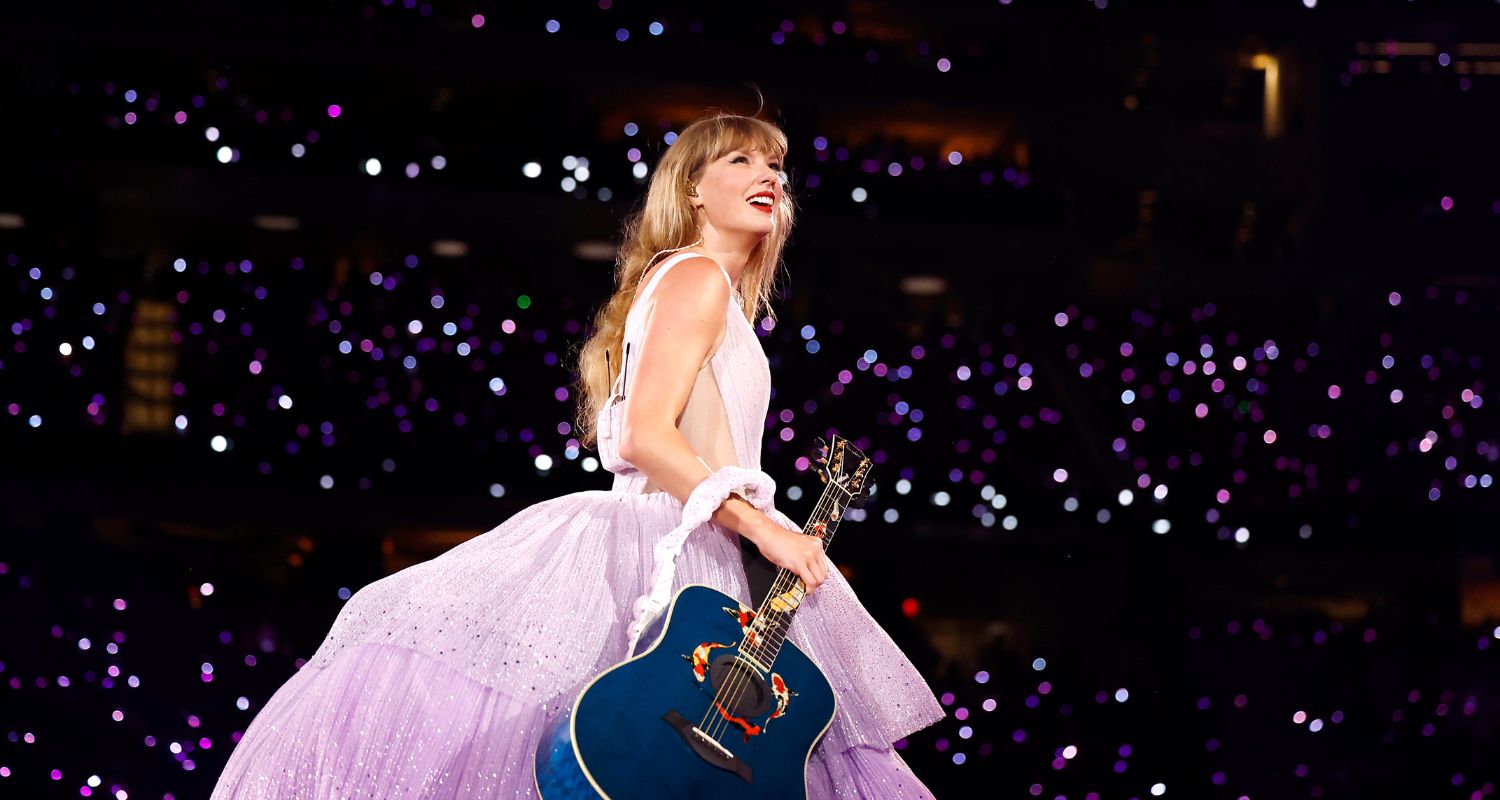The Cartier Women’s Initiative has one goal: to drive change by empowering female impact entrepreneurs. Since being founded in 2006, Cartier’s program has supported 297 impact entrepreneurs hailing from 63 counties, awarding more than US $7 million to women solving the world’s most pressing issues.
This year, the eleven first-place awardees were focused on food insecurity, period inequality, ethical artificial intelligence, and mental health. All 32 fellows were honoured at a glittering event in Paris, where the keynote address was delivered by human rights lawyer Amal Clooney.

The Cartier Women’s Initiative had something else to celebrate: the launch of its Oceania category, created to recognise the extraordinary work being done by Australian and New Zealander impact entrepreneurs.
“In Australia, what we’ve been seeing even before creating the Oceania category was these incredible women creating these businesses that are so solid,” Wingee Sampaio, who heads up the Cartier Women’s Initiative, told marie claire Australia. “Strong revenue, good customers, good business strategies, product roadmap – the thinking is mature. They’re creating a lot of impact. There’s a lot the world can learn from these businesses.”
As for what unites the 32 fellows honoured this year, Sampaio is clear: their grit. “They all have great ideas, passion, and perseverance, but if there’s one characteristic that’s common amongst all the fellows, it’s definitely grit,” she says. “And the Australian fellows are always part of that.”
Applications are now open for the Cartier Women’s Initiative 2023 fellowship, and close on June 30, 2023.

Ingrid Sealey, Teach Well
When Ingrid Sealey was growing up in rural Queensland, she would travel by bus to Brisbane — a 14-hour round journey — every six weeks for cello lessons. In turn, she would use her learnings to become her town’s most senior cello teacher, despite only being a teenager herself. “I think of the people that really invested in me from a teacher’s perspective,” she tells marie claire Australia. “They gave me the passion and the opportunities to pursue that professionally.”
It was this experience that led Sealey, who still teaches cello to this day, to launch Teach Well, an organisation bringing high impact teacher training to schools around the country.
“In Australia, we have an educational system that provides an opportunity for all students to attend school, but it doesn’t mean that every student has the same opportunities in the system,” she says.
“By age 15, students in Australia from disadvantaged backgrounds are nearly three years behind their peers. What this means for a lot of students is that they come to school every day, and we as a society sell them a promise. We say, ‘Turn up to school, do the work that a teacher asks of you, and you’ll be on track. But the truth is that for a lot of students in Australia, that’s very far from their reality.”
Since launching in 2019, Teach Well has worked with more than 2,000 teachers and school leaders in more than 200 schools, improving outcomes for more than 80,000 students. But there’s still so much to do, particularly in light of the teaching crisis in Australia and the disparities in regional and remote communities.
“Teaching has always had complexities, but they seem to be particularly pronounced now,” adds Sealey. “What we hear time and time again from teachers is not that they want teaching to be less complex, or that they want the work to be easier, but they want to feel like they can make more headway against that.”
She says the feedback they’ve received from teachers has only spurned them on further. “We’ve had some lovely quotes from teachers that say things like, ‘I’ve been a teacher for 16 years and I was going to quit in the next two years, but now you’ve invigorated my passion for teaching and the classroom, and I don’t want to go anywhere right now. This is the place for me.’ And that is everything.”
Teach Well was awarded first place in the Cartier Women’s Initiative’s Oceania category. Find out more about Teach Well here.

Lina Xu, Telecare
We often think of Australia as the lucky country when it comes to medical care, particularly in light of horror stories we see overseas. It was one of the reasons Lina Xu and her husband emigrated to Australia in 2017. But it wasn’t long before Xu, who was then consulting in aged care, saw that it was an outdated and inefficient healthcare system, despite the fact that the Australian government spends more than $100 billion each year on healthcare.
“I observed the residents in the nursing homes, even in metropolitan cities, struggling to access quality specialist care, because for them to actually see a specialist you had to call an ambulance,” she says. “That’s a 15 minute consultation. And then they’re stuck in a waiting room for four or five hours, waiting for an ambulance to pick them up afterwards.”
It was witnessing this outdated system firsthand that inspired Xu to convince her husband to cofound Telecare with her in 2019. It uses technology to break down barriers to accessing specialist healthcare — barriers that are exacerbated by geography in Australia. “In rural settings, workforce shortage is at breaking point at the moment,” says Xu. “Most of the regional hospitals are running at staffing rates of 60 per cent, which means your patients’ wait time will blow out by two or three years. Some of them may even need to wait for nine years.” Longer wait times will inevitably lead to worse outcomes for patients, adds Xu, as well as putting even more pressure on the healthcare system when those patients are finally treated.
On top of that, running at 60% staffing rates means those doctors and nurses are shouldering an even greater burden. “If you’re shouldering another 40% of the work, then you’re going to be burned out,” she says.
The medical industry was resistant to Telecare’s promises at first, but the Covid-19 pandemic accelerated the adoption of digital ways of accessing or providing medical care. Since June 2022, Telecare has partnered with 15 public hospitals across Australia, reducing the average wait time for referral visits down from 18 to 24 months to just three weeks.
“Having that social impact and leaving a legacy is something so meaningful to myself and my co-founders,” Xu says. “We believe Australians should have access to decent healthcare within a decent timeline.” It’s as simple as that.
Telecare was awarded second place in the Cartier Women’s Initiative’s Oceania category. Find out more about Telecare here.

Lily Dempster, One Small Step
Lily Dempster was working as an environmental campaigner in Canberra when she had her lightbulb moment. “People’s carbon impact is actually really significant,” she tells marie claire. “People switching their electricity provider has a really significant impact on carbon emissions.” It’s a school of thought that goes against — or is at least overlooked — the prevailing climate action message within both the private and public sectors, which tends to focus on the macro changes. “The IPCC [Intergovernmental Panel on Climate Change] has said that 40 to 70 percent of global carbon emission reductions can come from demand side mitigation, and a huge component of that is consumer behaviour,” she continues. “But it’s been really overlooked. I just saw this massive gap.”
It led her to creating One Small Step in 2018. The app that creates personalised plans for individuals to reduce their carbon impact, using gamification and behavioural science to encourage small changes on a major scale. To date, the app has bene downloaded more than 70,000 times, and the scale so far is inspiring: 20,000 users have eliminated plastic waste, 30,000 have reduced their home energy usage, and 7,000 have stopped purchasing fast fashion. In total, One Small Step calculates that its users have collectively saved more than eight million kilograms of carbon emissions, which is the equivalent of planting more than 130,000 trees.
“When you look at the top 50 climate solutions, behaviour change is critical for so many of them,” Dempster continues. “I think the [comparison] of individuals versus government or corporations is a false binary. And it’s one with my work and my advocacy I’m really trying to reshape.”
One Small Step was awarded third place in the Cartier Women’s Initiative Oceania category. Download One Small Step from the App Store or Google Play.
Photography by Victor Picon/Courtesy of Cartier.










